第16章 ON THE GOVERNMENT(2)
Whilst that the barons,the bishops,and the popes,all laid waste England,where all were for ruling the most numerous,the most useful,even the most virtuous,and consequently the most venerable part of mankind,consisting of those who study the laws and the sciences,of traders,of artificers,in a word,of all who were not tyrants--that is,those who are called the people:these,I say,were by them looked upon as so many animals beneath the dignity of the human species.The Commons in those ages were far from sharing in the government,they being villains or peasants,whose labour,whose blood,were the property of their masters who entitled themselves the nobility.The major part of men in Europe were at that time what they are to this day in several parts of the world--they were villains or bondsmen of lords--that is,a kind of cattle bought and sold with the land.Many ages passed away before justice could be done to human nature--before mankind were conscious that it was abominable for many to sow,and but few reap.And was not France very happy,when the power and authority of those petty robbers was abolished by the lawful authority of kings and of the people?
Happily,in the violent shocks which the divisions between kings and the nobles gave to empires,the chains of nations were more or less heavy.Liberty in England sprang from the quarrels of tyrants.The barons forced King John and King Henry III.to grant the famous Magna Charta,the chief design of which was indeed to make kings dependent on the Lords;but then the rest of the nation were a little favoured in it,in order that they might join on proper occasions with their pretended masters.This great Charter,which is considered as the sacred origin of the English liberties,shows in itself how little liberty was known.
The title alone proves that the king thought he had a just right to be absolute;and that the barons,and even the clergy,forced him to give up the pretended right,for no other reason but because they were the most powerful.
Magna Charta begins in this style:"We grant,of our own free will,the following privileges to the archbishops,bishops,priors,and barons of our kingdom,"etc.
The House of Commons is not once mentioned in the articles of this Charter--a proof that it did not yet exist,or that it existed without power.Mention is therein made,by name,of the freemen of England--a melancholy proof that some were not so.It appears,by Article XXXII.,that these pretended freemen owed service to their lords.Such a liberty as this was not many removes from slavery.
By Article XXI.,the king ordains that his officers shall not henceforward seize upon,unless they pay for them,the horses and carts of freemen.The people considered this ordinance as a real liberty,though it was a greater tyranny.Henry VII.,that happy usurper and great politician,who pretended to love the barons,though he in reality hated and feared them,got their lands alienated.By this means the villains,afterwards acquiring riches by their industry,purchased the estates and country seats of the illustrious peers who had ruined themselves by their folly and extravagance,and all the lands got by insensible degrees into other hands.
The power of the House of Commons increased every day.The families of the ancient peers were at last extinct;and as peers only are properly noble in England,there would be no such thing in strictness of law as nobility in that island,had not the kings created new barons from time to time,and preserved the body of peers,once a terror to them,to oppose them to the Commons,since become so formidable.
All these new peers who compose the Higher House receive nothing but their titles from the king,and very few of them have estates in those places whence they take their titles.One shall be Duke of D-,though he has not a foot of land in Dorsetshire;and another is Earl of a village,though he scarce knows where it is situated.The peers have power,but it is only in the Parliament House.
There is no such thing here as haute,moyenne,and basse justice--that is,a power to judge in all matters civil and criminal;nor a right or privilege of hunting in the grounds of a citizen,who at the same time is not permitted to fire a gun in his own field.
No one is exempted in this country from paying certain taxes because he is a nobleman or a priest.All duties and taxes are settled by the House of Commons,whose power is greater than that of the Peers,though inferior to it in dignity.The spiritual as well as temporal Lords have the liberty to reject a Money Bill brought in by the Commons;but they are not allowed to alter anything in it,and must either pass or throw it out without restriction.When the Bill has passed the Lords and is signed by the king,then the whole nation pays,every man in proportion to his revenue or estate,not according to his title,which would be absurd.There is no such thing as an arbitrary subsidy or poll-tax,but a real tax on the lands,of all which an estimate was made in the reign of the famous King William III.
The land-tax continues still upon the same foot,though the revenue of the lands is increased.Thus no one is tyrannised over,and every one is easy.The feet of the peasants are not bruised by wooden shoes;they eat white bread,are well clothed,and are not afraid of increasing their stock of cattle,nor of tiling their houses,from any apprehension that their taxes will be raised the year following.The annual income of the estates of a great many commoners in England amounts to two hundred thousand livres,and yet these do not think it beneath them to plough the lands which enrich them,and on which they enjoy their liberty.